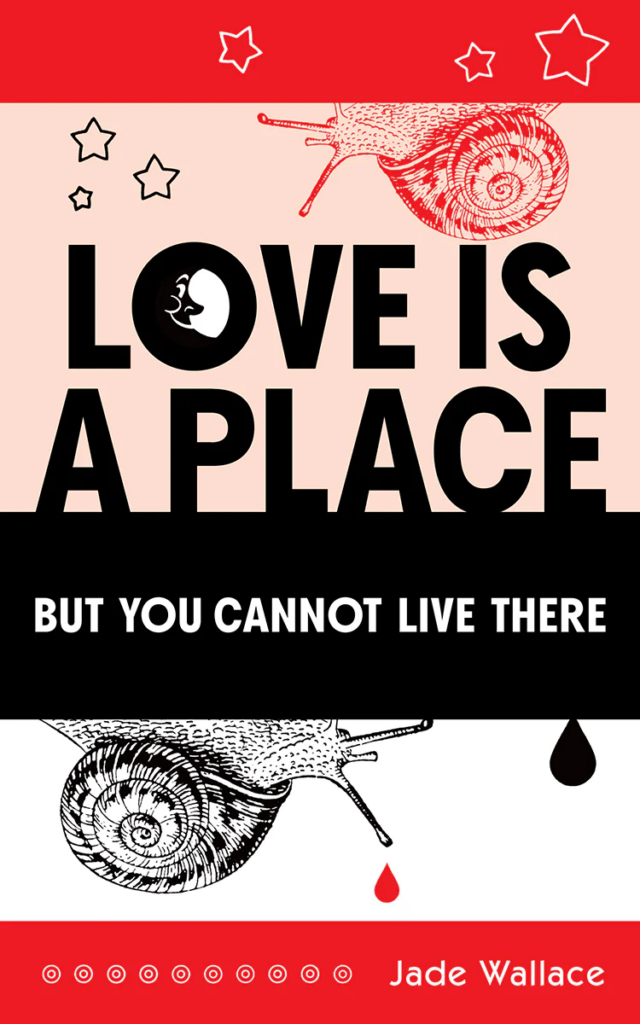
Love Is A Place But You Cannot Live There
Jade Wallace, 104 pgs, Guernica Editions, guernicaeditions.com, $20
How do we define where love lives? Is it a place you can travel to? Is it somewhere you could escape from? Jade Wallace doesn’t give us the answers, so don’t go looking for them.
Every poem in this collection has mastered the art of depicting love as something tethered to a place but not belonging to it. Each section details the journeys of mundane people and their unique but ultimately similar types of love, from ghost hunting to long-awaited trips to New York to finding love in old age. She chronicles seeking someone’s approval and the desire to be touched and that aching feeling within us that never quite lets us turn our backs on our parents, especially when we love them.
Wallace does an exceptional job of creating lush landscapes, but perhaps her best feat is her accurate depiction of the GTA: Vaughan with its ravines tucked behind sparse apartment buildings; the immigrants who “lived at the place where the subway ended.” As a Torontonian, the instant recognition while reading was awesome.
The stories Wallace tells without restraint through flowing free verse are important but inconsistent. Her ability to make individual moments and small details coalesce into full narratives is spectacular, but some sections fall entirely short of completing the narrative the synopsis boasts.
Love is A Place But You Cannot Live There incites a lot of introspection into how we are connected to our environments in intimate ways, but not necessarily made loving by them. The idea of psychogeographic investigation itself sounds quite complicated, and the poetry agrees that yes, it is. The human brain and its capacity to love have never been simple. Love comes in all different shapes and forms, different landscapes, different homes. Embrace its complexity.
